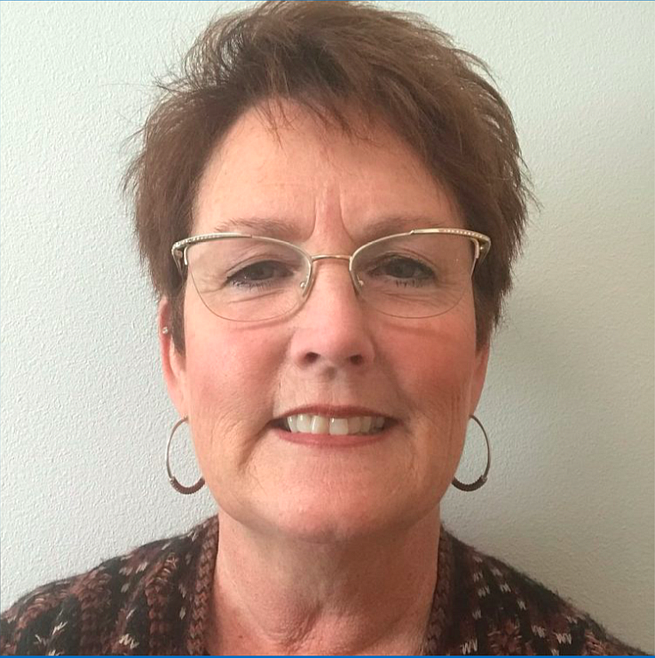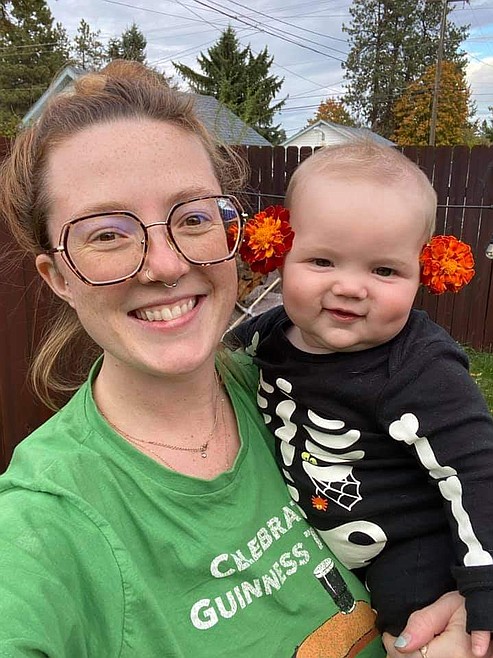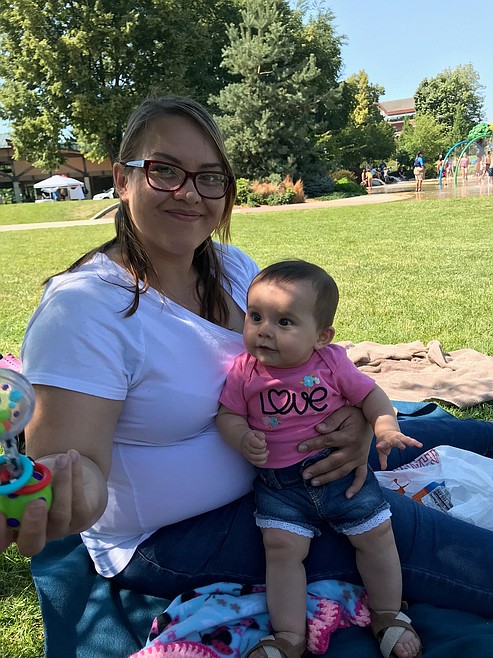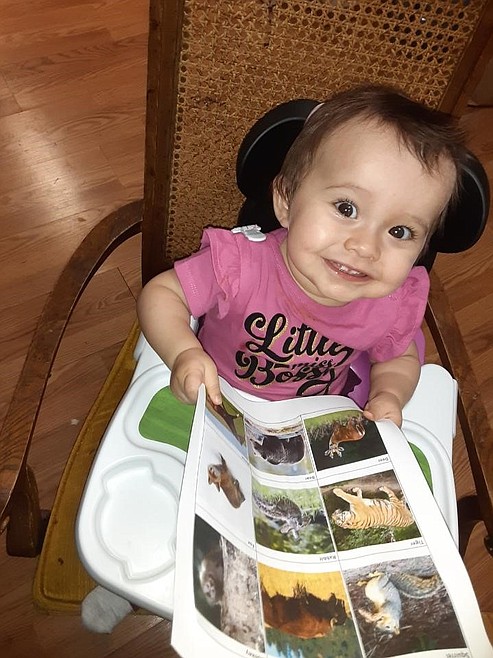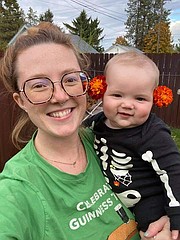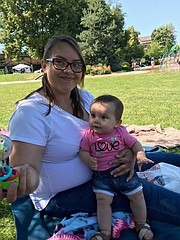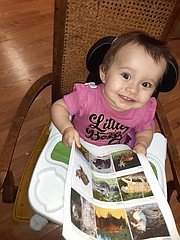Families win, poverty loses
COEUR d’ALENE — Working against generational poverty in the area, Panhandle Health District offers two home-visiting programs designed to give parents a helping hand.
The Nurse-Family partnership and Parents as Teachers programs provide education and support that will impact families for generations, said nurse manager of home-visiting programs Cindi Richardson.
“We have a lot of generational poverty in our area,” Richardson said. “With all of the things that go along with generational poverty, drug and alcohol misuse, mental health challenges and an overall general lack of support are the biggest factors.”
Many first-time parents haven’t had good parenting role models growing up, Richardson said.
Nurse-Family Partnership has been filling the gap for new parents since 2012. Working with first-time moms prior to 29 weeks gestation through the child’s second birthday, each family is paired with a registered nurse who provides regular home visits.
Before the baby is born, nurses educate clients on adopting lifestyle choices that support healthy pregnancy and safe delivery.
Following birth, clients are given breastfeeding support, taught positive parental coping skills and coached on how to problem solve and plan for the future. These supports are paired with routine health screenings for mother and baby.
Katie Wilds, a participant in the program, became a first-time mom while the COVID pandemic was affecting the availability of social supports.
"Things really became intimidating when I discovered that many traditional programs were shut down due to the pandemic," Wilds said. "Discovering the Nurse-Family Partnership was a game-changer for my partner and I. Working with the amazing nurses, Gina and Kris throughout my entire pregnancy and on through to the next chapter of raising our daughter is something I am beyond grateful for."
Every step forward is celebrated, Richardson said. The program is “strength-based,” celebrating everything a family does well and building on that, rather than hyper-focusing on weaknesses.
“One of the philosophies of the program is that only a small change is necessary,” Richardson said. “We’re looking at a two-generation approach: Any small changes we can make now will make changes in the child’s life and then they will make changes in their children’s lives. We’re looking many generations down the road trying to break that trajectory of poverty.”
A long-term program goal is to reduce dependency on public services.
“We’re always setting goals, something that a lot of our young women have never done before,” Richardson said. “When you’re in the chaos that a lot of them grow up in, in survival mode, you’re not thinking past today.”
Encouraging clients to consider where they want to be in two weeks, a year or five years down the road, the partnership teaches clients to identify their own resources and take immediate steps toward the desired future.
Currently funded to serve 100 moms, five nurses cover all five northern counties. Since its inception, visiting nurses have served 751 families. The National Statistics Office says that for every dollar invested in the program, $6.40 is saved in future costs for high-risk families.
Realizing that many families wanted support to continue past the child’s second birthday, PHD founded Parents as Teachers in 2018, to work with children during toddlerhood and into kindergarten.
A team of trained, college-educated professionals visits families to teach about child development and strengthening parenting practices.
“We talk with them about brain development and make them understand how play is learning,” Richardson said. “Parents really gravitate towards that. They love understanding about the neural connections going on when they are playing with their kids.”
Bringing activities that use common household materials, visiting teachers focus on reading, singing and literacy preparation. That support is paired with developmental screenings and referrals when appropriate.
“The studies have shown that these kids have early school success, but also success well into the elementary school years when they have home visiting in place,” Richardson said.
Each child in the program gets a new book at every visit, Richardson said. “It may be for some families that this is the only source of new books they have,” Richardson said.
Alicia Sepulveda, a participant in the Parents as Teachers program, said, "I am thankful for the PAT program. My home visitor, Kaila, has helped me through so many obstacles from information while I was pregnant to now that Gabby is 10 months old. I know what to expect and how Gabby and I can grow."
Successes celebrated range from young parents earning GED or high-school diplomas and going on to college, to families who now read together nightly.
“There is research out there saying that the first thousand days of a child’s life are the most important for learning and brain development,” Richardson said.
For information on participating, go to panhandlehealthdistrict.org or contact Cindi Richardson at 208-415-5298.
Participants in Nurse-Family Partnership must meet income requirements. Anyone with children may participate in Parents as Teachers.

